This is the first in a four-part series focusing on the findings from our 2023 Network IT Management Report. We surveyed 4500 IT professionals from internal IT teams and MSPs across North America to gauge where their organizations are heading from a network management perspective. In part one, we’ll detail the overarching needs network professions across all industries to have in common.
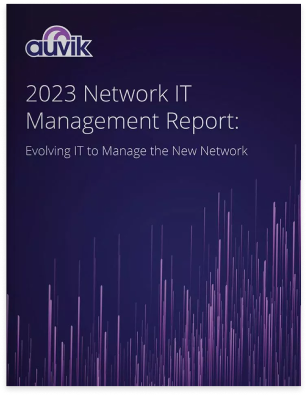
2023 Network IT Management Report
Read the 2023 field report and compare your own IT statistics.
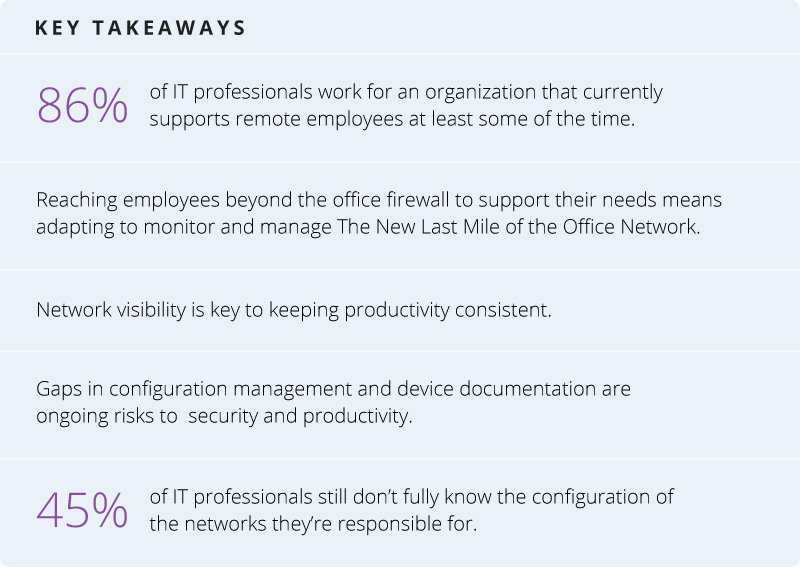
2022 has been an exciting year for Auvik. With the new technology acquisitions we’ve made, and the ongoing updates to our core network monitoring and management software, we’re setting the stage for the next half of 2023.
Support for hybrid teams is table stakes
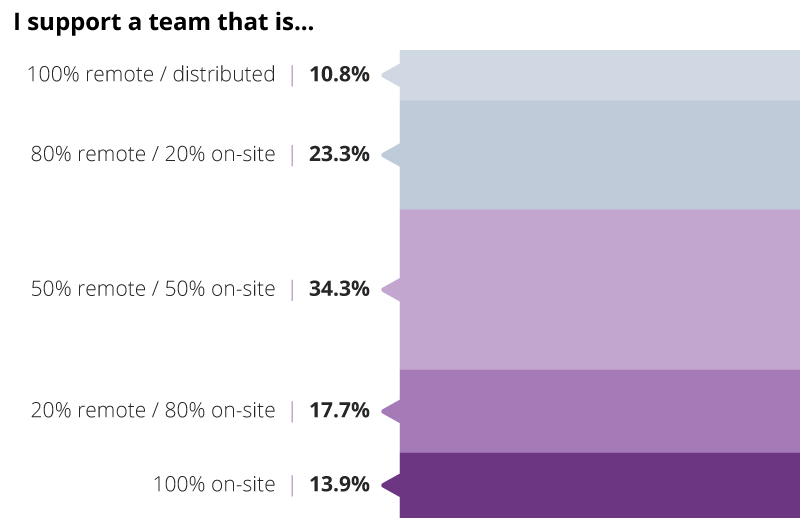
Remote work has been a hot topic for the last 3 years, and it isn’t going away any time soon. 86% of respondents to our survey support a team that is remote at least some of the time. The concept that work is done entirely on an office network, secured behind a firewall, is an idea from pre-pandemic times.
So how are service providers and internal IT teams rising to meet the challenges of supporting employees at home, in a coffee shop, or around the world? Our respondents agreed that there are some core components of network management that will be essential as we move forward toward this last mile.
Network visibility is lacking
First of all, it’s important for IT professionals to have full visibility when it comes to their team’s connected devices and network performance. In the 2021 Network Field Report, we noted that 57% of IT teams did not fully know the configuration of their networks. While that percentage has since decreased, our 2022 results still point to a worrying 45% of IT professionals lacking a complete picture of the current network.
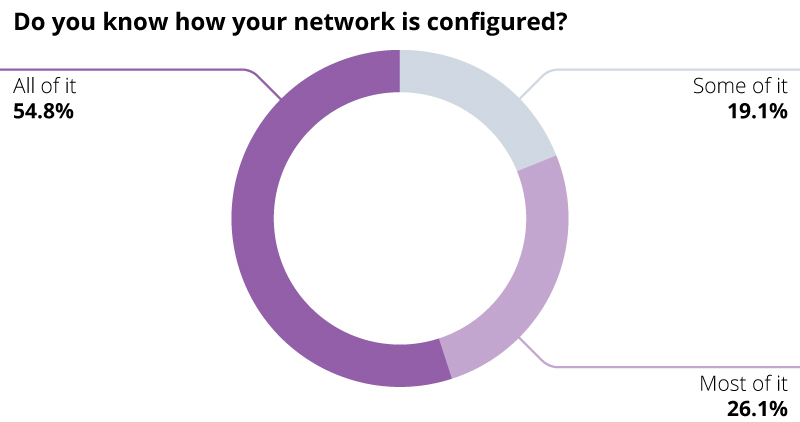
Other responses further indicated that IT pros either are not fully aware of who is making changes to network configurations or that control of this process has moved out of their hands (due to interference from the Last Mile of the Office Network, for example, a remote worker’s ISP is outside an IT professional’s realm of influence).
Security
Lack of network visibility has also led to an increase in concerns around security. This also includes heightened insider risk due to employees working to solve their own IT issues. Whether it’s malicious and intended, like revealing confidential information or sharing logins, or simply human error, like via a phishing or smishing attack, leaks can happen when SaaS and additional network territory are left unmonitored. Saas monitoring is a relatively new, highly requested, service IT teams are asking for— and could be essential as remote work grows.
Missing documentation
Documentation is critical to visibility as well as troubleshooting speed and mean-time-to-resolution (MTTR). And documentation habits have improved since 2021. 58% of teams now report updating their documentation on a weekly or daily basis—a 14% increase from the previous report. But there are still holdouts. About 6% of those surveyed only update documentation annually. If your team hasn’t already implemented centralized and automated network documentation, that could be an important investment to make.
End-User experience matters
While multiple and traditional metrics like MTTR still matter, 45% cited end-user satisfaction as the top success metric for ITOps and NetOps teams. The ability to troubleshoot network issues affecting the end-user experience quickly and efficiently is critical to keeping end-users productive and businesses happy.
While quick troubleshooting is not the only measure of an IT professional’s success, it does make up a significant amount of day-to-day workload. This year’s report noted that the most commonly tracked metrics for IT professionals are based on troubleshooting or cost. If we compare the percentages of troubleshooting metrics:
- 45% of respondents are tracked on customer or end-user satisfaction
- 42% of respondents are tracked on the percentage of uptime and/or downtime their customers or end-users experience
- 37% of respondents are tracked on the number of tickets closed in a time period
- 33% of respondents are tracked on Mean Time to Resolution (MTTR)
Compared to these statistics, only 15% of respondents said they are evaluated on the cost of their operations. This could be due to the significant impact downtime has on a business. Time is money, and that is true for IT professionals in the sense of both MTTR and downtime prevention.
As we continue to stretch the boundaries and reach of IT teams to support hybrid working conditions, downtime, MTTR, and cost of IT operations continue to be key factors in an IT team’s success. However, how those “classic KPIs” are measured is also changing. It’s vital that network monitoring, management, and maintenance continue to adapt to the changing circumstances of each organization’s workforce. In 2023, IT professionals will continue to improve the service given to end-users, no matter how and where they work.
Next in our report insights, we’ll look at the vital role automation plays in the network monitoring and management field.
Your Guide to Selling Managed Network Services
Get templates for network assessment reports, presentations, pricing & more—designed just for MSPs.
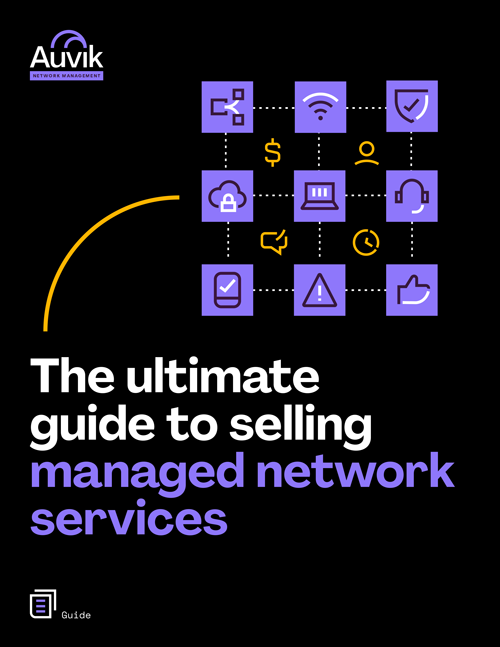






Do you have a 2022 Network Vendor Diversity Report NVDR like the one you published in 2021?
Unfortunately, we were unable to publish a 2022 report.